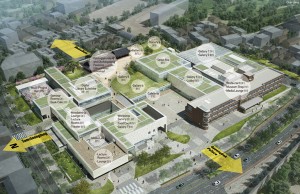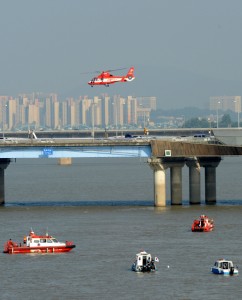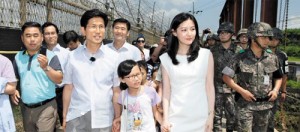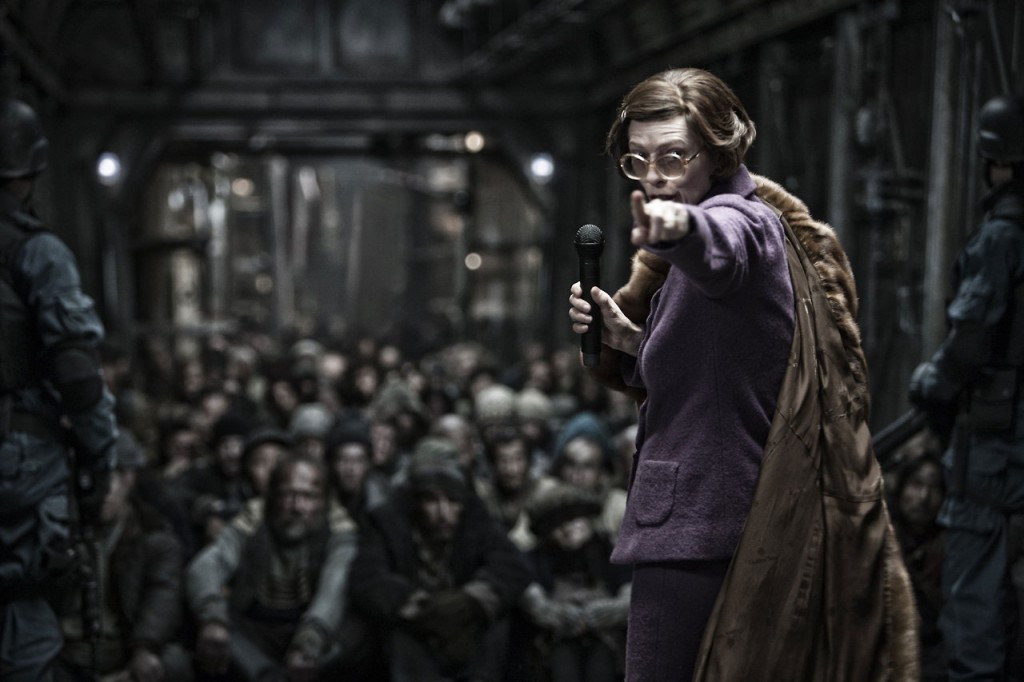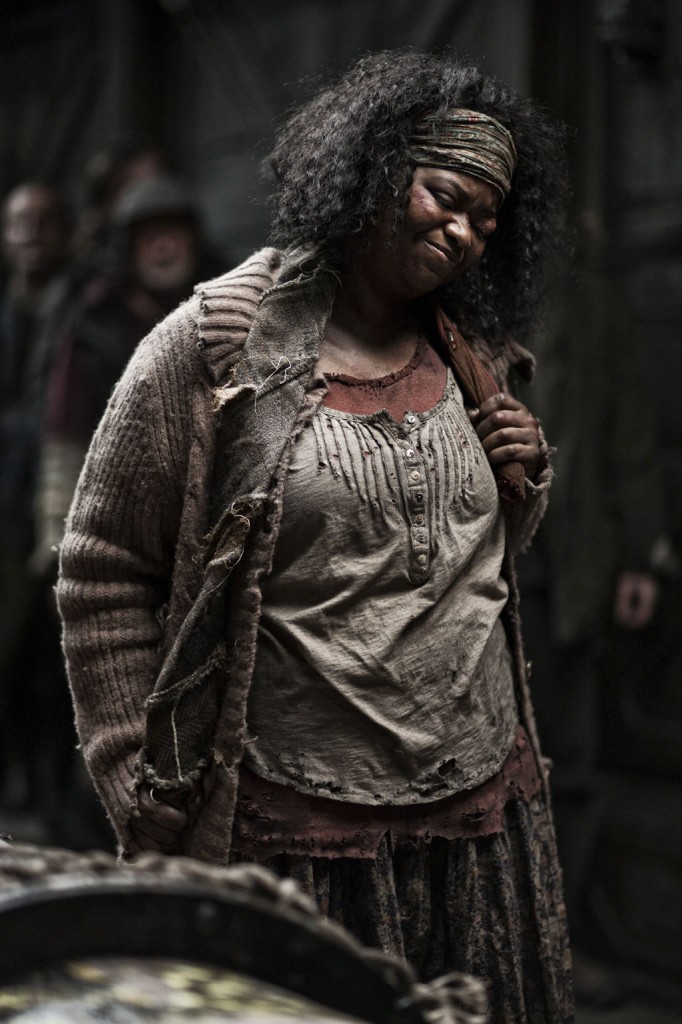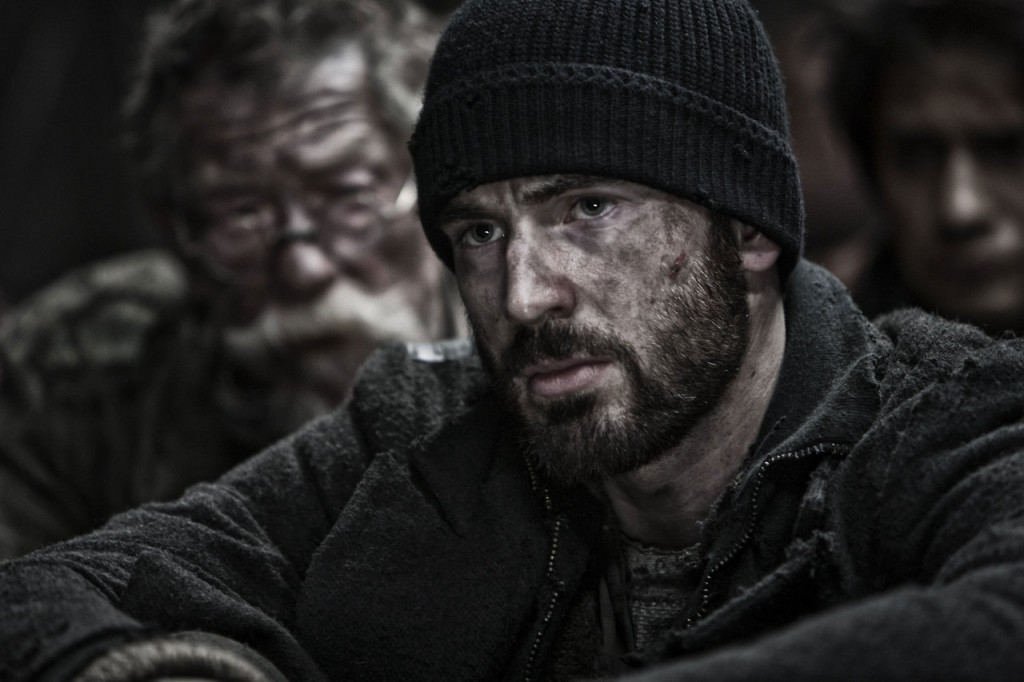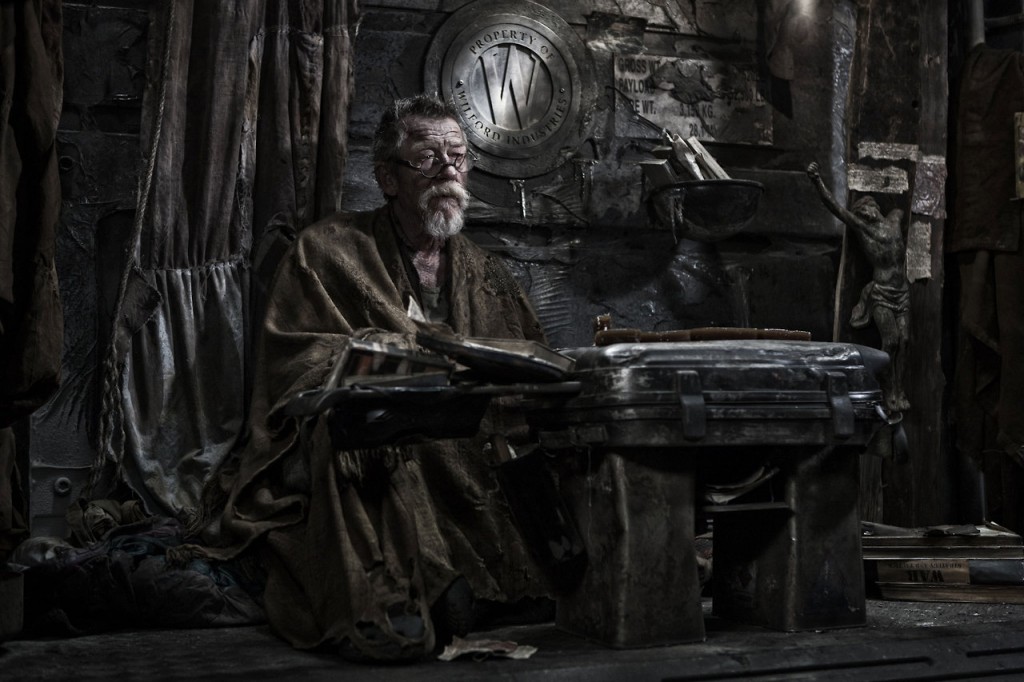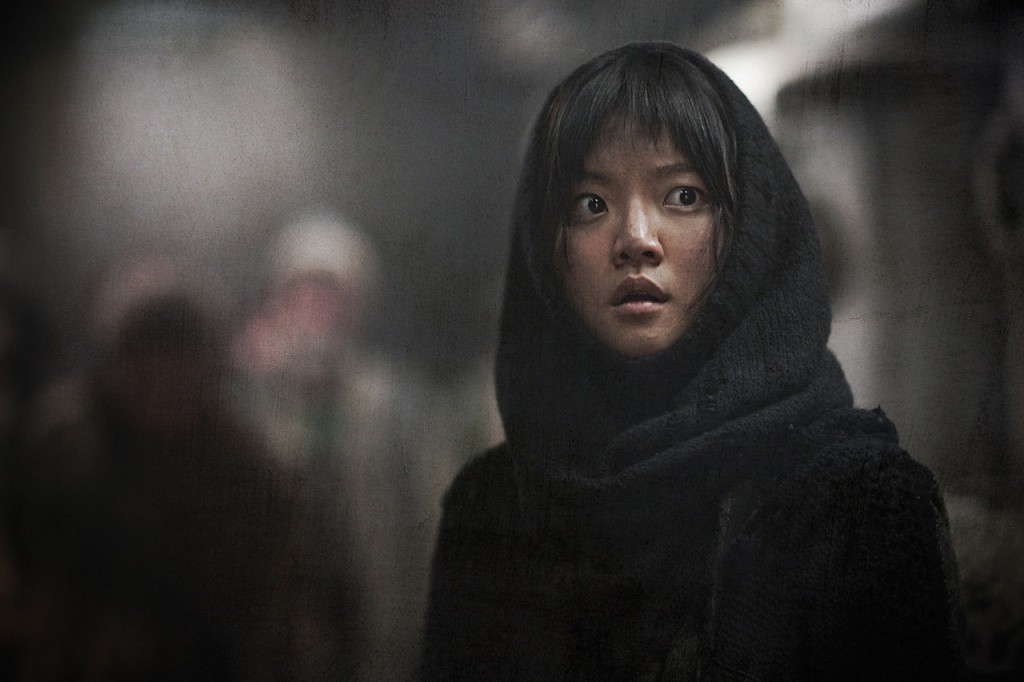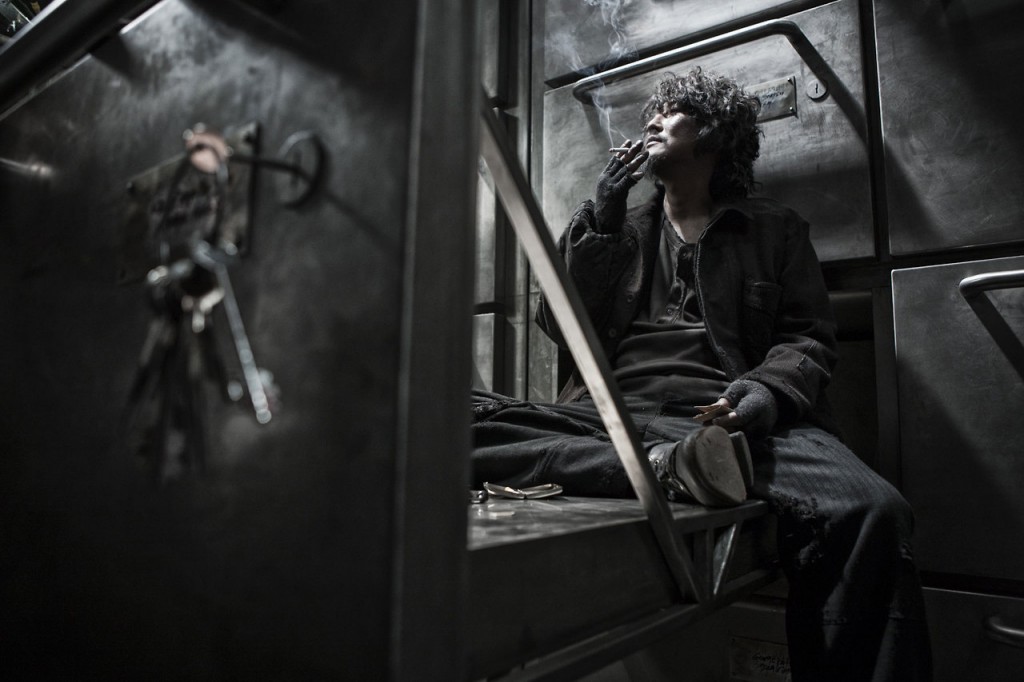UPDATE: Hi all who’ve linked in to my Snowpiercer ramblings. Thanks for coming. To be honest, I’m used to rambling in a bit of a bubble, not for a wider audience. This was never meant to be an official, last-word on the film. Bong is great, but I did not like this movie, so I was trying to work out why. So these thoughts are a bit half-formed. Take them for what they are…
ORIGINAL: I didn’t want to pile on Snowpiercer, having made a couple of bitchy Tweets about it on Sunday. But perhaps I should expand on my thoughts a little bit…
In case you’ve missed it, Snowpiercer is Bong Joon-ho’s adaptation of the French science-fiction graphic novel Le Transperceneige. It’s about a train circling the frozen Earth, after a misguided attempt at fixing global warming caused the planet to completely ice over, killing everything. The train is incredibly divided by class, which, unsurprisingly, makes the poor folk in the back rather unhappy. So one day, a guy in the back, Curtis (Chris Evans), leads the poor in a revolution against the rich people in the front of the train.
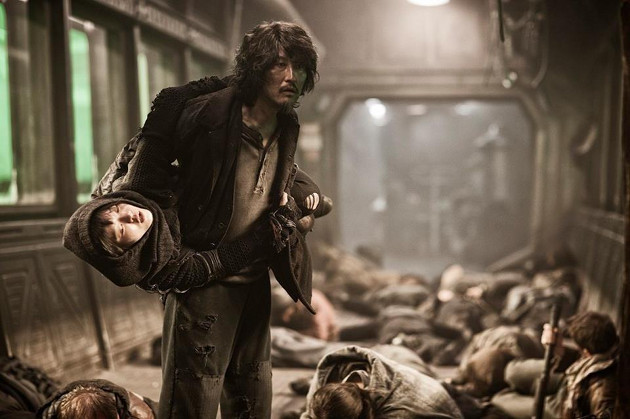
Oh, there will be SPOILERS, so proceed at your own risk.
As I wrote Sunday, I found Snowpiercer to be rather ridiculous, heavy-handed and empty-headed. Not offensively terrible (like Kim Jee-woon’s I SAW THE DEVIL or everything Michael Bay has ever touched), but just really “meh.” For a director as good as Bong Joon-ho, I expect better and hold him to a higher standard.
Big picture first: the story just doesn’t work. It doesn’t work as science-fiction, and it doesn’t work as allegory. Just because a story with huge freakin’ plot holes was made by a favorite director doesn’t mean those holes aren’t there and aren’t massive. Even if you accept the silly idea of a train being the only thing to survive this massive, planet-wide cooling (and with a movie like this, you just sort of have to accept the initial premise, or why even watch?), nothing following makes sense.
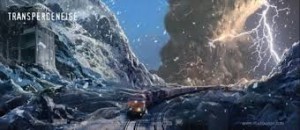
Case in point: the last frickin’ scene in the movie (again, SPOILER!) … which shows that there is indeed life left on Earth. For a giant mammal to survive 17 years of this icy weather, things could not have been nearly that bad. It had to live somewhere. It had to eat. Clearly, things were not as bad as we were led to believe, which undercuts the whole point of the movie.
Nor does the train itself make any sense. There’s just no way the closed ecosystem of the train could support 1,000 people, at least not the train that we saw. And where do they get all those cockroaches?
The basic plotting is full of problems, too. Ko Ah-sung’s character has some kind of magic telepathy, which is unexplained and rather random (and certainly doesn’t match the rest of the film). People act like the train has been zipping through the frozen wastes for a hundred years, or even a thousand, not seventeen.
And the end of the film features not one but THREE big soliloquies, as Evans, Song Kang-ho, and Ed Harris all have to explain their characters and the big picture and whatever else hasn’t been made clear. That much exposition is a pretty bad sign a story has gone off the rails (train pun!).
Also, the ruling class on the Snowpiercer train are some of the stupidest villains ever. There are about a thousand ways they could have maintained order better if that was the goal.
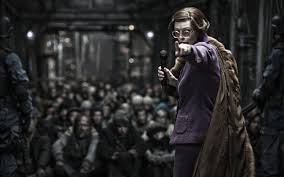
Okay, if the story makes no sense at any sort of speculative-fiction level, maybe it was intended as an allegory for something about life today. But, then, an allegory for what? Today’s class divisions and rising inequality? I don’t think so. There are no parallels between the economics of the train and today’s inequality (you’d need to show the rich cars co-opting support of some of the poor cars for that to begin to make any sense).
Maybe capitalism itself is a high-speed train rushing through the frozen desolation it created? Ugh, now my head hurts.
Another thing I noticed that pissed me off: what’s with the trope used by so many (bad) sci-fi stories these days about the whole apocalypse and subsequent uprising being part of some convoluted plan to control things? Wilford’s speech at the end of Snowpiercer could have been said by the Architect in Matrix 2. And a lot of the themes parallel the story in Hugh Howey’s Wool.
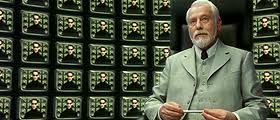
I suspect the film suffered from that insufferable 386-generation trait, the romanticizing of the democracy movement and the violence that gave birth to modern Korean society. Given that Bong is a Yonsei University sociology major from the 1980s (a hotbed of the student movement), this is an understandable failing, but it’s still a pretty big failing. The equations are very simplistic: poor = good, rich = bad. Poor teaming up to oppose the rich with massive violence = very very good. Cathartic for some, I guess, put ultimately it is pretty childish. And Snowpiercer is rather dark and serious to be so childish.
Oh, all the axe-swinging in a key fight scene mid-movie makes me wonder how involved Park Chan-wook was in the movie — it looks like something right out of Oldboy.
But, in the end, the biggest failing of Snowpiercer, in my subjective opinion, is that it’s just not very entertaining or interesting. It starts slowly, has little action or fun stuff, and is way too dour most of the time.
Anyhow, after all that negativity, I think I should end with something positive. So … Song Kang-ho and the translation machine had some funny bits. And Ko Ah-sung is great. I’m really looking forward to seeing her in more films in the future.
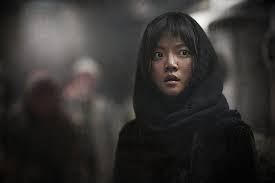
Sorry to sound all negative. I’m sure Bong Joon-ho is going to make plenty more great films in the future. But Snowpiercer was a total misfire.
